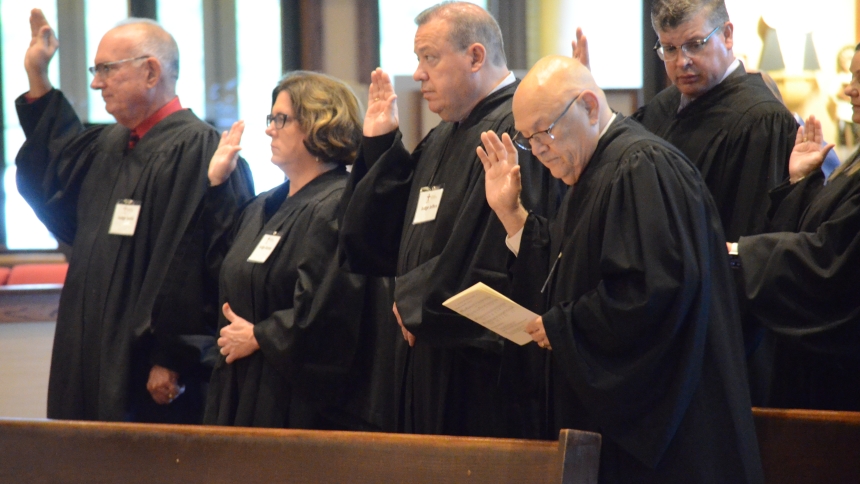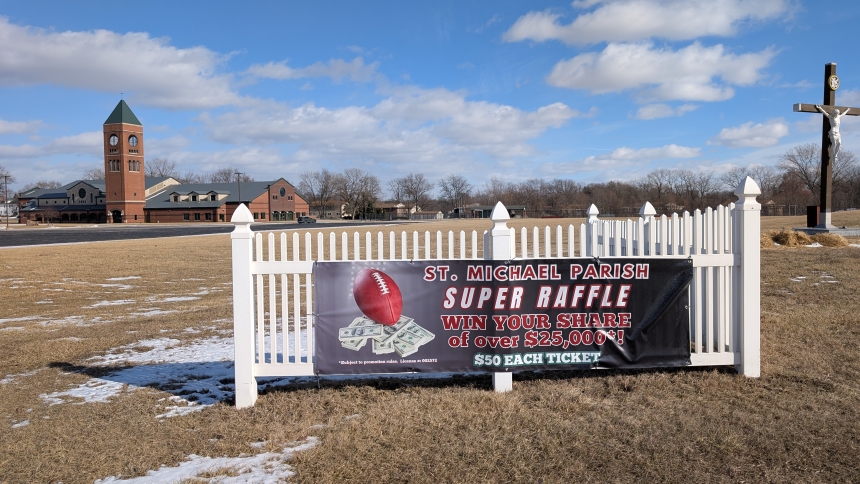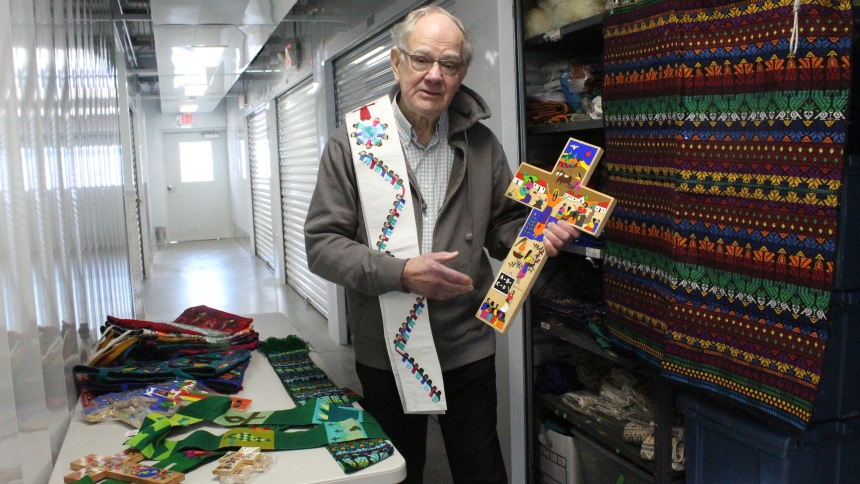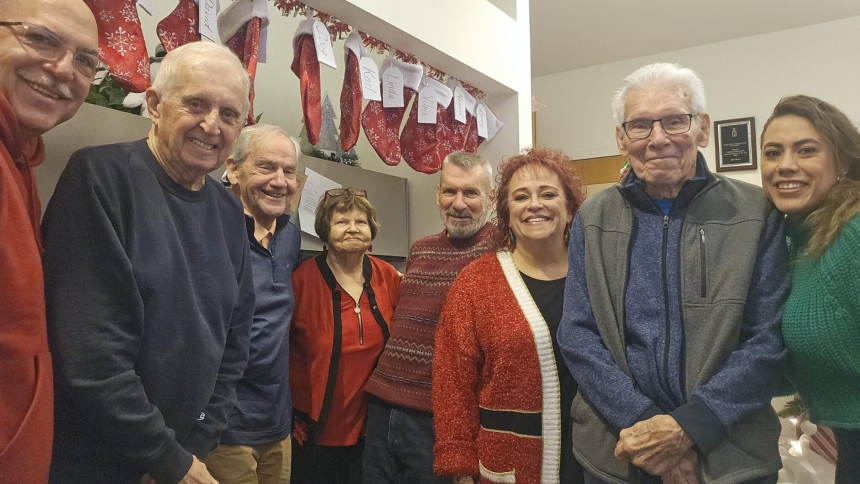
MERRILLVILLE – The Red Mass dates back to 1245 in Paris and 1301 in Westminster. The liturgy was a means of invoking the wisdom of the Holy Spirit upon judges, justices and members of the legal profession at the beginning of each new judicial year. The Red Mass was named after the color of the vestments worn for the Mass of the Holy Spirit.
Today’s Red Mass brings together members of the bar, government officials, the judiciary and the financial community to reflect and seek the Holy Spirit’s guidance in the coming year’s efforts.
Bishop Robert J. McClory celebrated the annual Red Mass in the Diocese of Gary on Oct. 15 at Our Lady Queen of Martyrs. He greeted all those in attendance, stating, “This is an opportunity for us to reflect on the call of service in the world of law and in the world of all those who seek to support the common good.”
Later, Bishop McClory began his homily by discussing the deeper meaning behind rules and how a greater understanding typically leads one to realize that rules are in place for one’s own good. He went on to say that those who appreciate the law, those who impose or make decisions based on those laws, should strive to live that out.
“We shouldn't just say, ‘yeah, that's for everybody else, but not for me,’ or ‘I do what I want. I'm going to look at all the exceptions that apply to me, but I'm going to impose on others the standard that I don't hold myself to,’” he said.
Bishop McClory added that there can come a certain amount of “danger” to those who have authority. He explained they can begin to see their power, not in its wider context for the good it can accomplish, but for personal gains and how it can be manipulated according to one’s own platform.
Turning to the readings of the day from the book of Romans, the bishop reflected on St. Paul’s words: “For by the standard by which you judge another you condemn yourself, since you, the judge, do the very same things... Do you suppose, then, you who judge those who engage in such things and yet do them yourself, that you will escape the judgment of God?”
Bishop McClory said that while these are sobering words, they relate to the work of judges. They also apply to anyone whom people look to for support, such as lawyers and those in financial professions.
When faced with a challenging decision or situation where someone is unsure what to do, Bishop McClory suggested “taking yourself out of the situation, removing any anxiety in one’s own experience.” He said an Ignatian way of thinking would be to ask, “If someone came to you with what you’re just describing, how would you advise them?”
“Sometimes when you take yourself out and just look at the situation, you can say, ‘That’s what I would advise them. Why am I not giving myself that same advice?’” he said.
Whatever the situation, Bishop McClory advised that the Lord wants his people to live lives of integrity, while acknowledging that no one is perfect.
“It’s not that if there are any transgressions, you’re forever doomed,” he said. “That’s why Jesus came, so that is the case. We can receive mercy. We can receive forgiveness. We can live a new way.”
Bishop McClory closed his remarks by thanking those gathered for serving in their roles.
“Let's be His patrons of that love and mercy, living lives of integrity,” he said.
The judges in attendance, and those in similar professions, then stood and recited the Indiana Attorney’s Oath led by The Honorable Marissa McDermott. They affirmed their duty to “support the Constitution of the United States and the Constitution of the State of Indiana.”
Following the Mass, after moving to the parish’s hall, Gary Bonk, a lawyer and chairman of the Red Mass Committee, said he was thrilled to introduce the guest speaker for the event. Honorable Thomas Kirsch II, United States Court of Appeals for the Seventh Circuit, spoke on the judicial decision-making process and the importance of an independent judiciary.
“I think this ties in very well with today’s Gospel and the words that were spoken at the Mass,” Bonk said.
The diocesan Red Mass is organized by the Catholic Foundation of Northwest Indiana. During the program, Judy Holicky, coordinator of stewardship and development, asked those gathered to keep in mind that it’s not only important to leave gifts for family members and friends, but it's also very important to consider the ministerial.
“Whatever your church is, whatever your favorite charity might be, we want to increase the awareness in the community for people to consider estate planning,” Holicky said. “We find, of course, that the need is great for our ministries, and the more money that we have, the more ministries we can do.”
The Catholic Foundation was founded in 2008, based on a need that the late Bishop Dale Melczek and members of the diocesan finance committee saw to plan for the future. Since that time period, the foundation has continued to grow and now manages over $20 million in assets for the churches, schools and ministries.
“The good news is that we are adding new funds every year,” Holicky said. “We know that a lot of times when people are giving, it's because of what's in their heart, and when I talk to people who come to me and say, ‘We want to make a donation,’ that's almost the first question – What's in your heart? What are the things that you are thinking of? What are the things that you want to see continue after you’re gone?”
For more information on the Catholic Foundation for Northwest Indiana, visit catholicfuture.org or email Holicky at info@catholicfuture.org.



